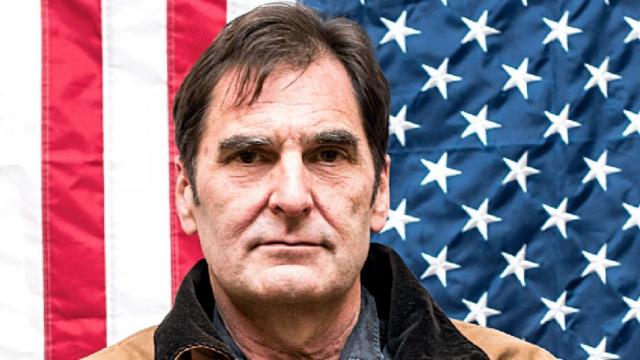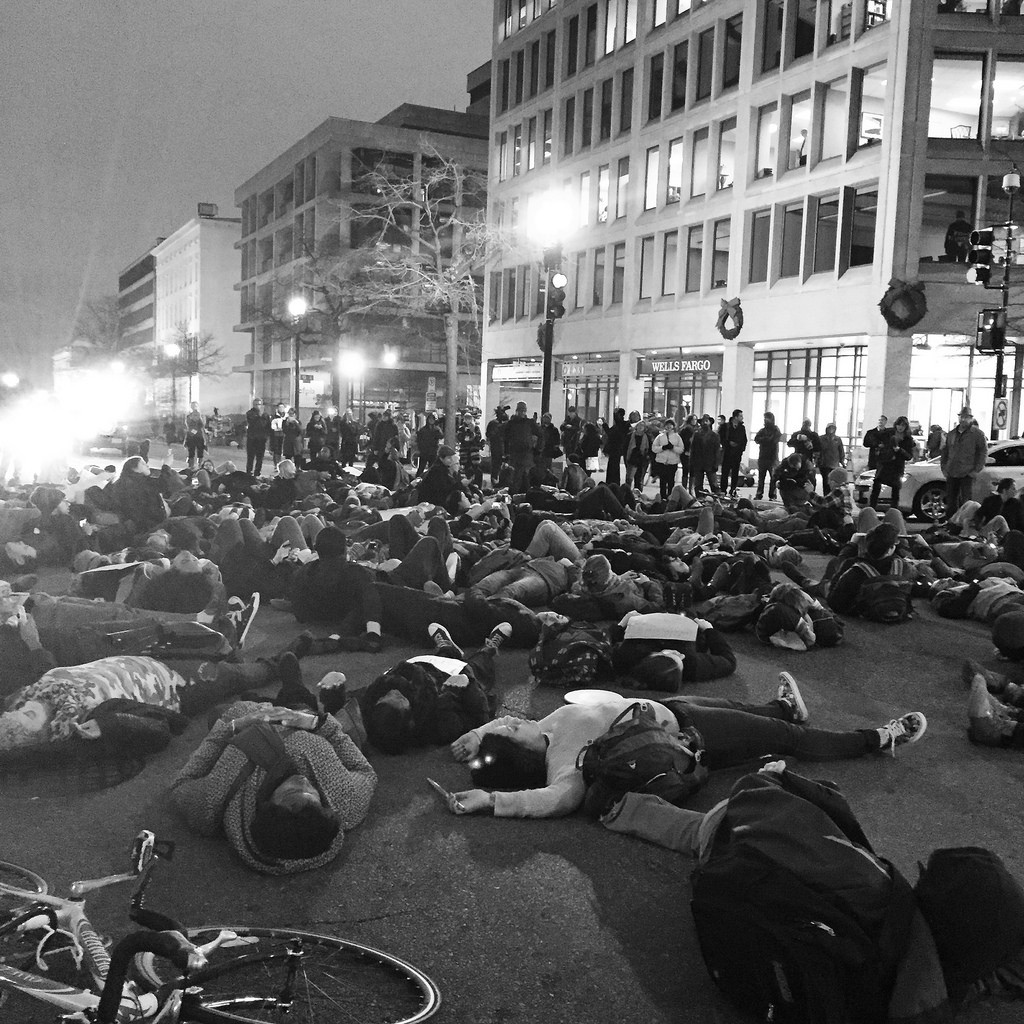
After his first trial resulted in a hung jury, Ken Ward, a former deputy executive director of Greenpeace USA and former president of the National Environmental Law Center, was found guilty on one felony count of second-degree burglary for turning off a shutdown valve last fall on Kinder Morgan’s Trans-Mountain pipeline near Anacortes, Washington. The maximum possible sentence was 10 years in jail and/or a fine up to $20,000.
On June 22, Judge Michael Rickart of the Skagit County Superior Court used a “First Time Offender Waiver” to sentence Ward to a mix of time served (two days), community service and six months of supervised release. The state will decide later how much Ward will have to pay in restitution, if anything.
Ward’s nonviolent civil disobedience was undertaken in tandem with other activists in Minnesota, Montana and North Dakota as part of a coordinated #ShutItDown action on October 11, 2016, which temporarily stopped the flow of Canadian tar sands oil into the United States.
Previously associated with the direct actions of the Black Lives Matter movement, the hashtag has also become a rallying cry for environmental activists and the struggles of indigenous Water Protectors throughout North America, most famously at Standing Rock. As a #ShutItDown spokesperson told the website EcoWatch: “We did this in response to Standing Rock’s call to action for escalated actions.”
Four other defendants from the national Oct. 11 action – Emily Johnson, Annette Klapstein, Leonard Higgins and Michael Fostermost – await trial on charges similar to those Ward faced. To some, the risks that Ward and other activists took may mark the beginning of a new era of civil disobedience, inspired by earlier successes like the civil rights struggles of the 1960s, and the almost forgotten anti-nuclear actions of the 1970s.
As Ted Hamilton, co-founder of the Climate Defense Project, wrote recently: “By cribbing from the playbook of past social movements like the Vietnam War resistance and anti-nuclear power campaigns – which used political necessity trials to educate the public and to ratify the idea that social progress required working outside of established channels – climate necessity activists have pushed their cause away from wonky, inside-baseball environmentalism and toward grassroots, social justice insurgency.”
The Climate Necessity Defense
A key aspect in both of Ward’s trials was his counsel’s plan to present a "necessity defense," meaning that his relatively minor crime would be justified by the much greater danger to the public presented by climate change. In both trials, judges ruled that the climate necessity defense was not admissible, thus removing a pillar of Ward’s defense before a jury of his peers could hear it.
William P. Quigley, a Distinguished Professor of Law at Loyola University, explained in a 2003 paper for the New England Law Review concerning direct actions in protest against the Iraq invasion, that judges usually err on the side of caution when dealing with necessity defense. “They indicate a fear that by allowing civil disobedience defendants the chance to argue the necessity and comparative worth of their minor illegal actions to juries of their peers, terrible consequences of disorder will be unleashed upon society,” Quigley argued.
In Ward's second trial, Judge Rickart also made the claim that climate change is contested – a statement that would surprise the vast majority of climate scientists – by saying from the bench, “I don’t know what everybody’s beliefs are on [climate change], but I know that there’s tremendous controversy over the fact whether it even exists. And even if people believe that it does or it doesn’t, the extent of what we’re doing to ourselves and our climate and our planet, there’s great controversy over that.”
Although necessity defenses have a mixed record in terms of judges allowing them to be heard, the mere use of the argument, when permitted, could convince juries and eventually create a space for the kind of direct actions necessary to confront the existential threat posed by climate change, as well as related issues like access to clean water in under-served communities.
Moving Beyond Marches and Non-binding Agreements
While the election of a climate change denier as U.S. president has added to the sense of urgency in this fight, it was already becoming clear that more conventional means of confronting global warming – including non-binding agreements like the one ironed out in Paris under the Obama administration, and recently overturned by Trump – will themselves not be enough to tackle the problem.
As Ward himself wrote in a recent op-ed in The Hill, “I welcome pulling out of the Paris agreement because it will disrupt our complacency and strengthen the most vigorous avenues of climate action left to us, which are through the courts and direct citizen action.”
In fact, although many of the countries that are signatories to the Paris accord will do their best to honor its modest goals, the fact is there are no real penalties for non-compliance with the agreement. At worst, some worry the treaty could give the impression of action without real change.
To many, this makes the risky actions taken by the #ShutItDown activists – and others like New York state’s Wawayanda Six, who blocked the entrance to the site where Competitive Power Ventures is building a new natural gas power plant – so vital to the climate struggle going forward, both for the publicity they create and the opportunities they present to use climate necessity as a defense in court.
Although the Wawayanda Six were found guilty and sentenced to community service for refusing a police order to leave the entrance to the power plant construction, where three activists had chained themselves together, at least one of them, James Cromwell, said he will continue his civil disobedience after the trial. “I will not pay this fine. I will go to jail, and I will appeal,” he said.
These cases come against a backdrop of increasing criminalization of protest in many states and cities, which are making the consequences of most forms of protest more punitive. On the day of President Trump’s inauguration, 214 protesters, as well as some journalists covering the protests, were arrested and charged with felony rioting for a small amount of property damage caused by a few troublemakers in the crowd. It was unprecedented punishment for most of the protesters, who broke no laws themselves but now face massive fines and possible jail time.
With the consequences of conventional protest growing greater, and the media doing its best to ignore marches unless some form of confrontation provokes violence or arrests, some feel this is an opportune moment for activists to rethink tactics – particularly when responding to the urgent, catastrophic changes happening in the natural world.
Among the most powerful images in the people's fight against the Senate's attempt to repeal the Affordable Care Act, a sit-in at the office of Senate Majority leader Mitch McConnell saw 43 people with disabilities forcibly removed by police, some pulled out of their wheel chairs in brutal fashion. The public outcry showed that these kinds of direct actions can both create sympathy and give impetus to larger conversations in their aftermath – but foremost, they require courage on the part of activists themselves.
As Anthony Rogers-Wright of climate the blog The Leap told the Seattle Weekly after Ward’s conviction, “I think we’re gonna see a lot more nonviolent direct action. That’s where the fight is going to be waged.”
3 WAYS TO SHOW YOUR SUPPORT
- Log in to post comments












